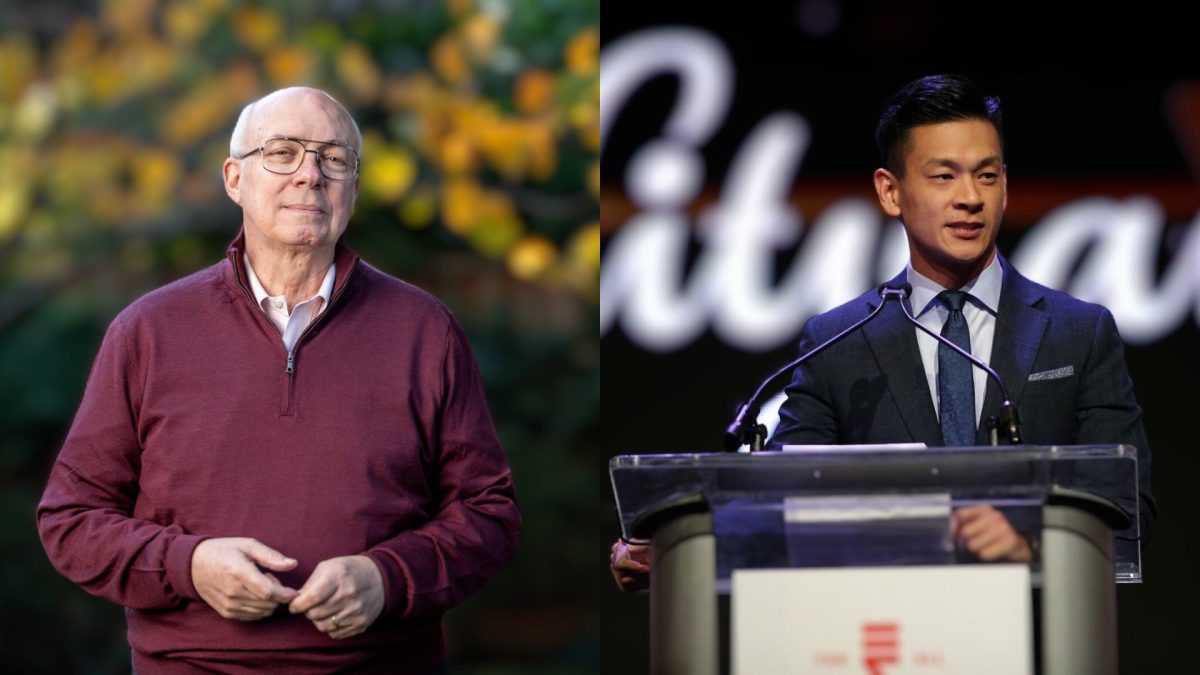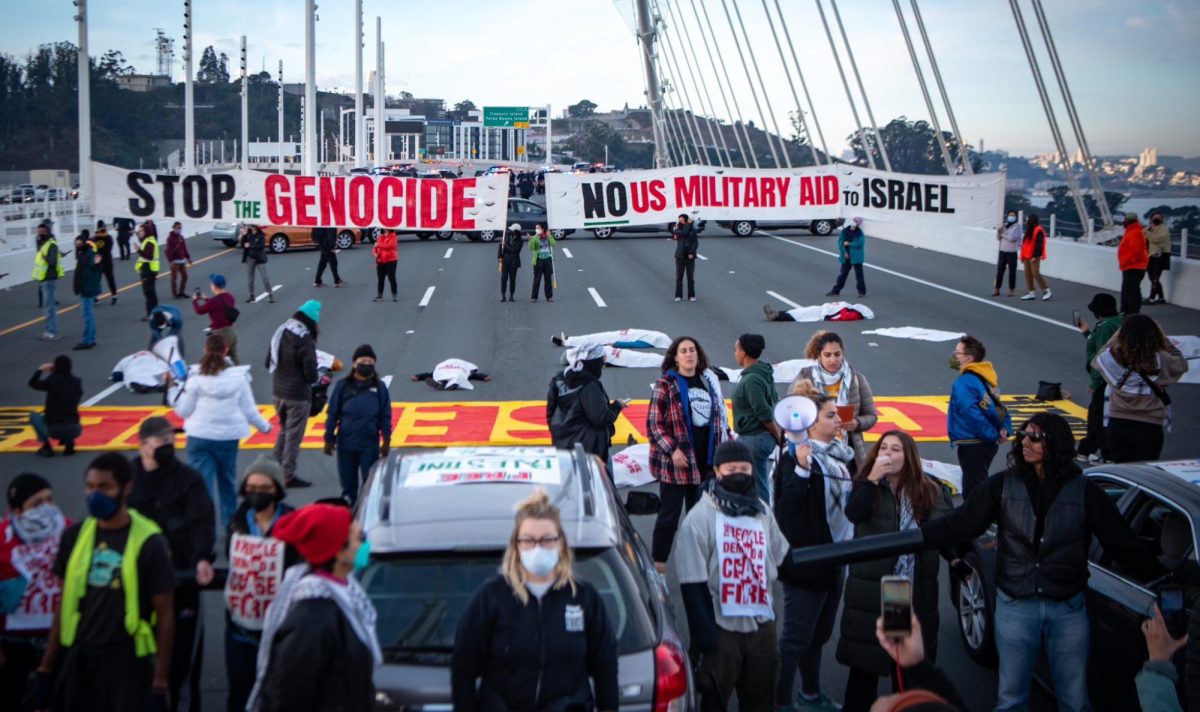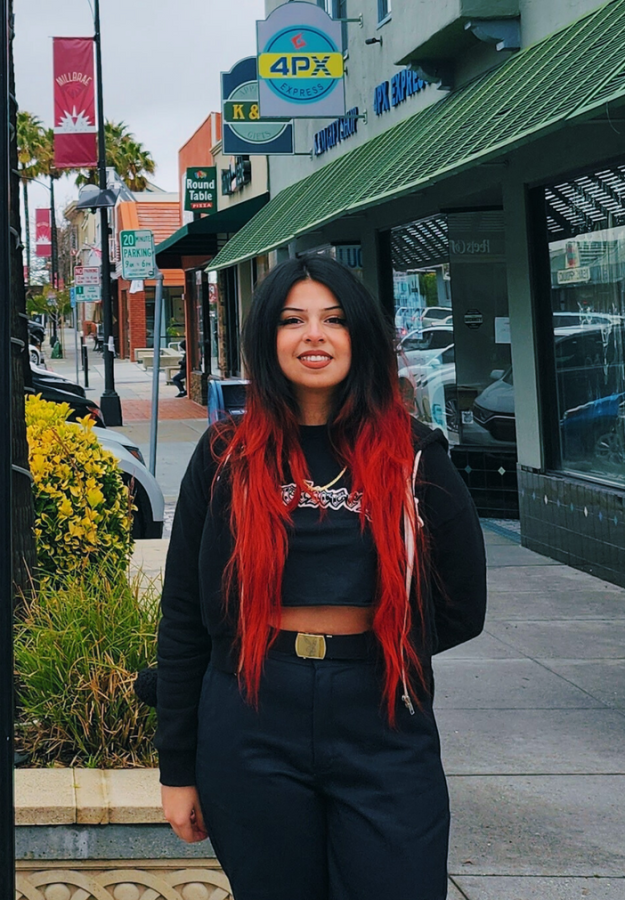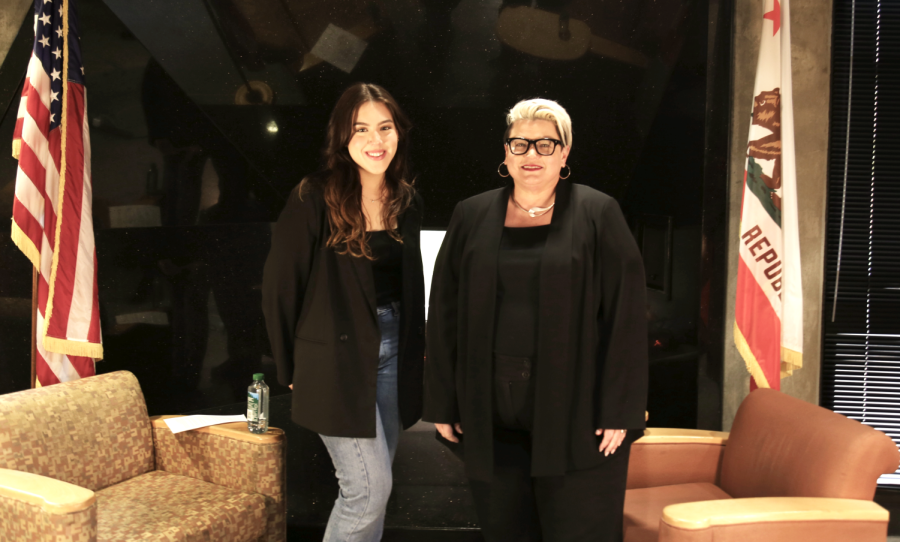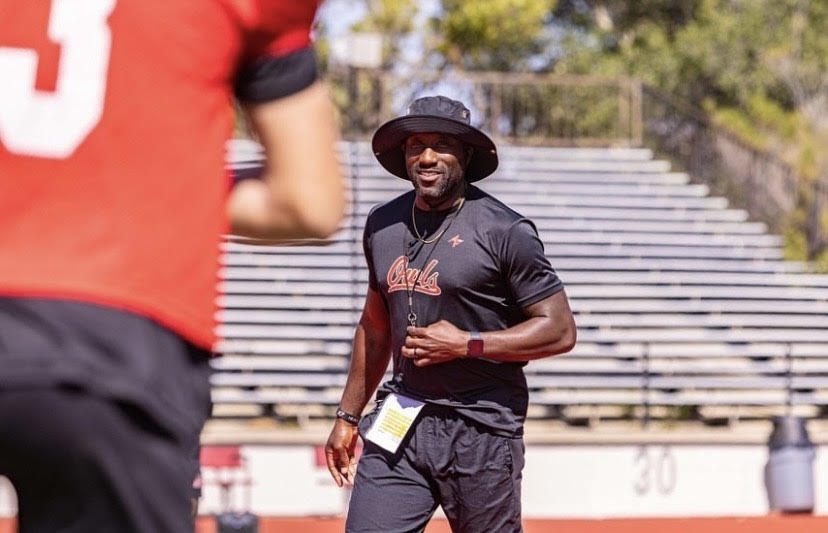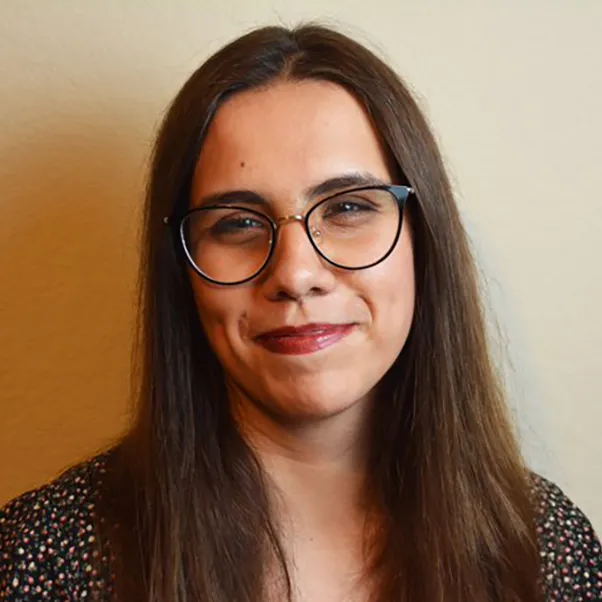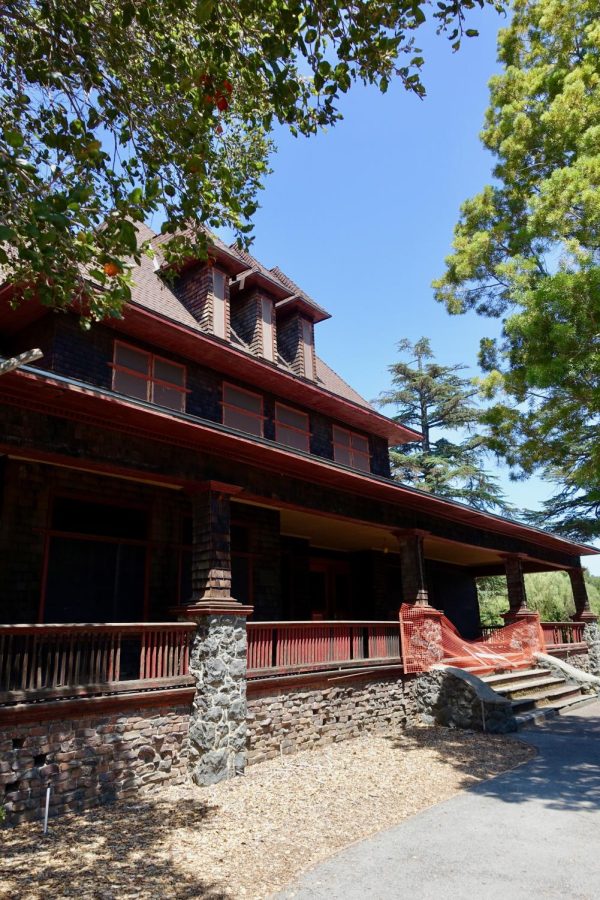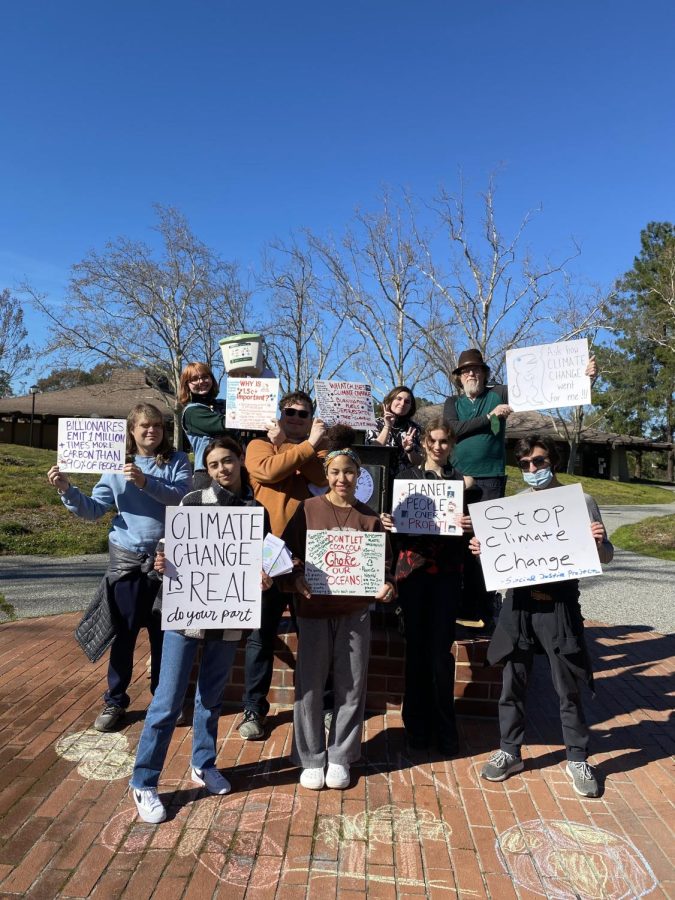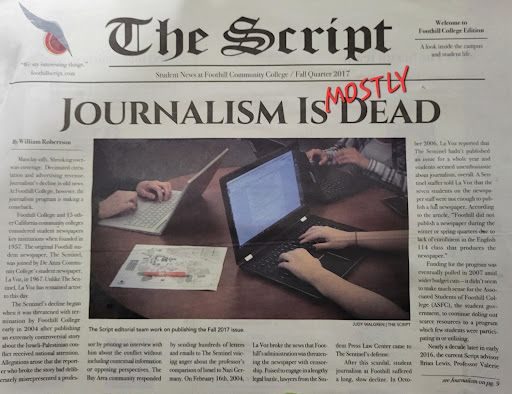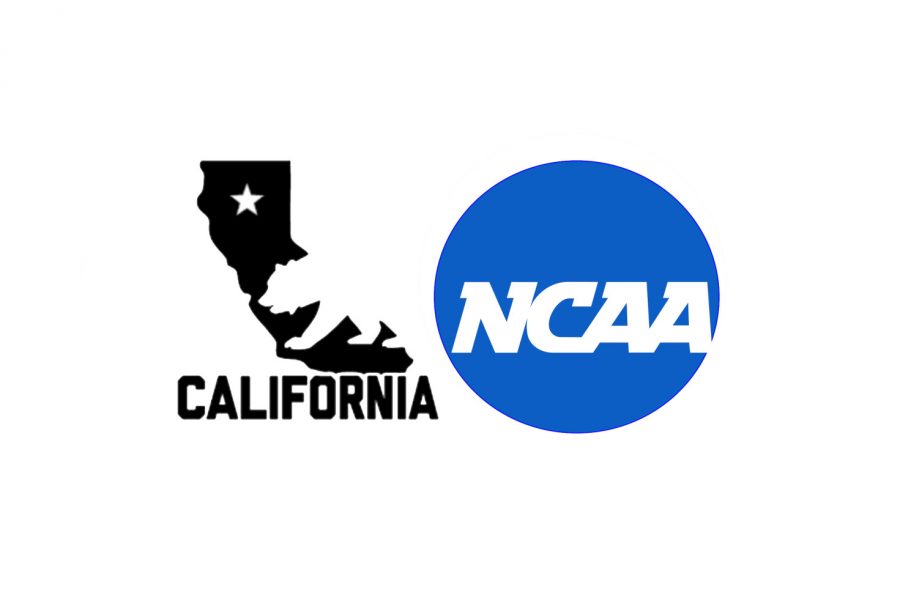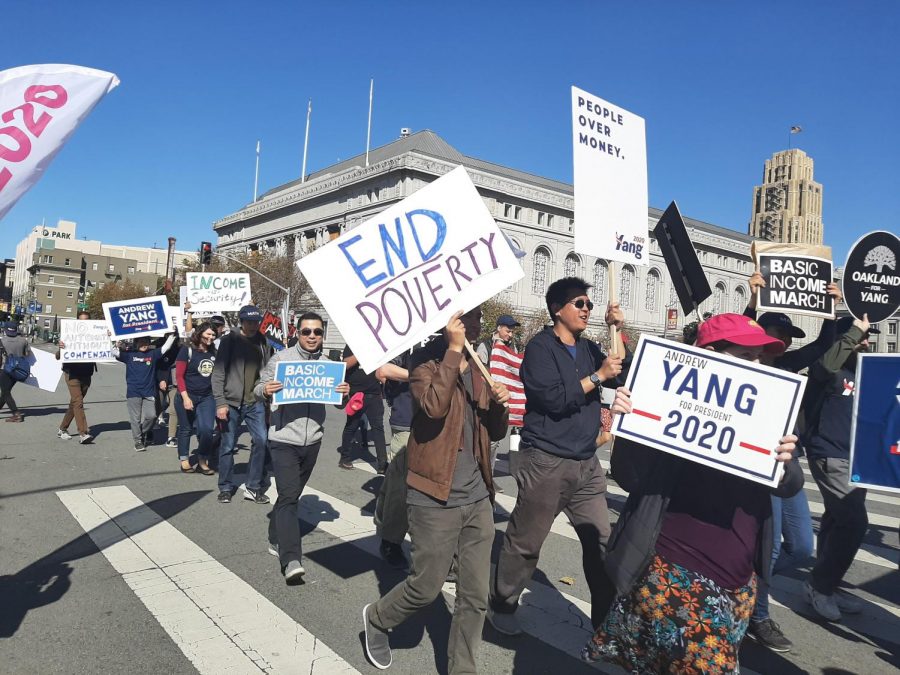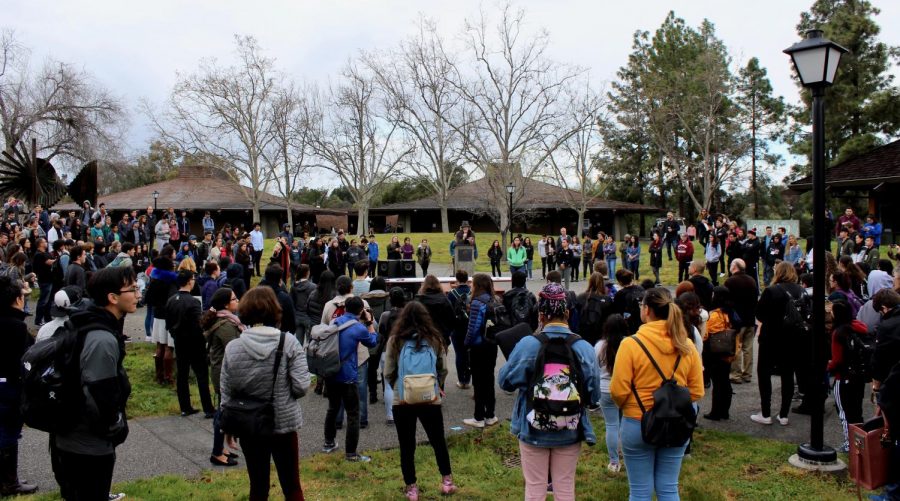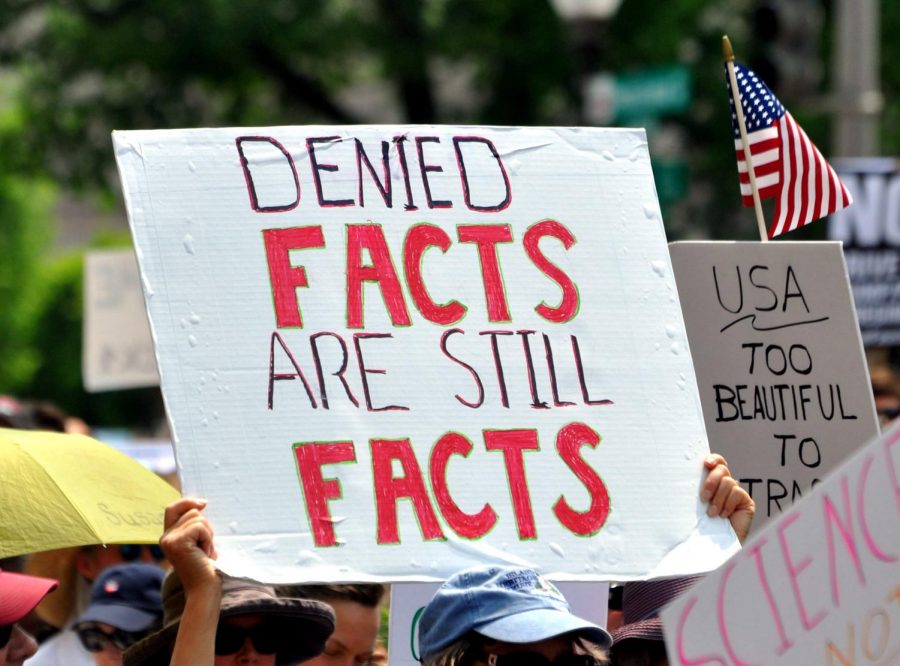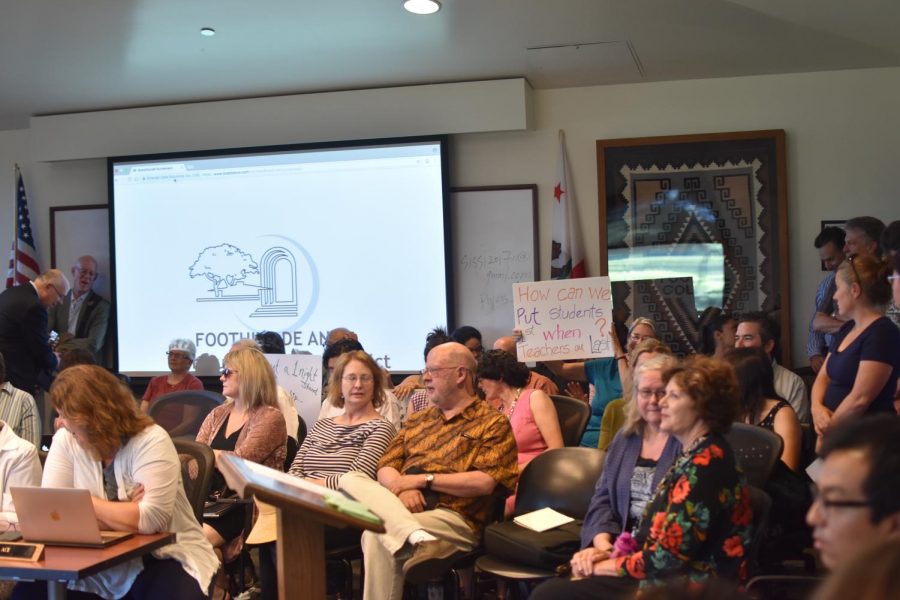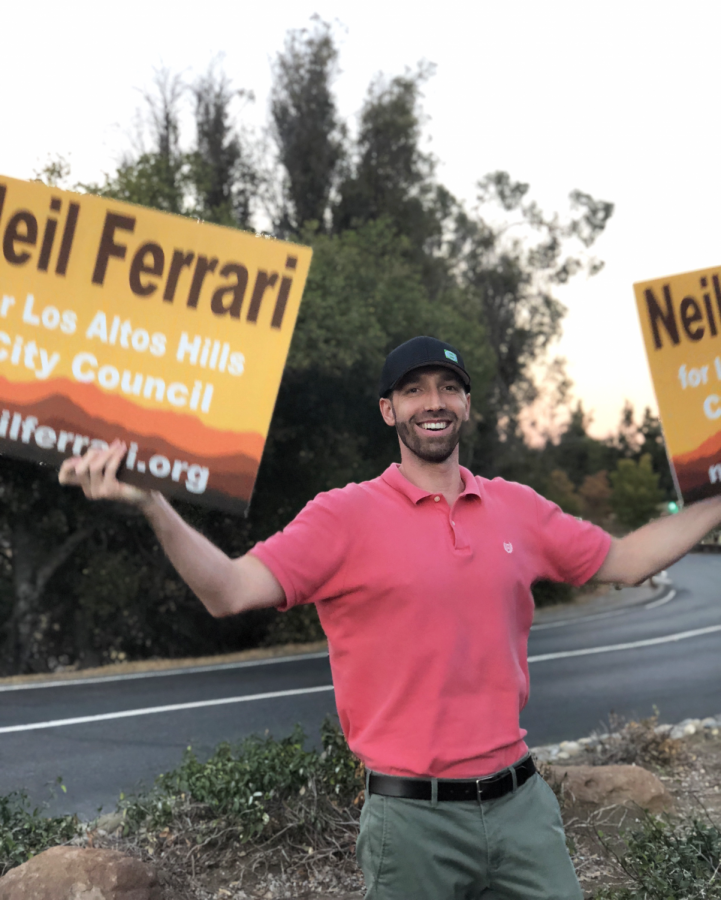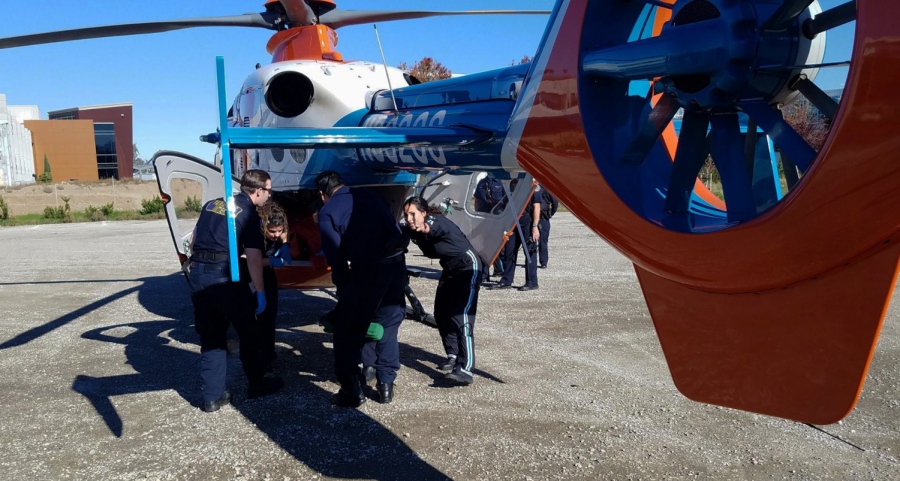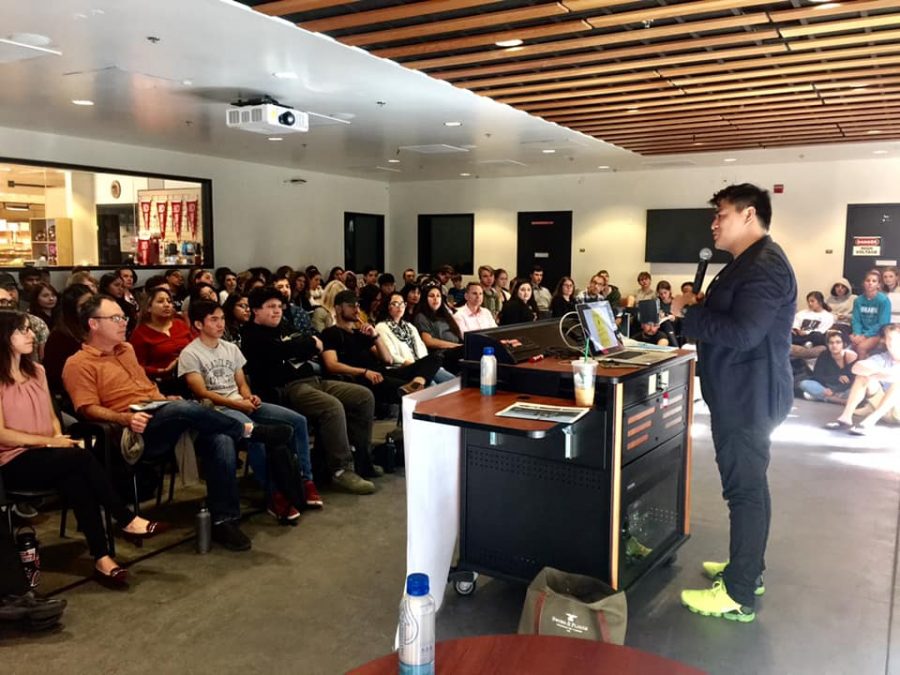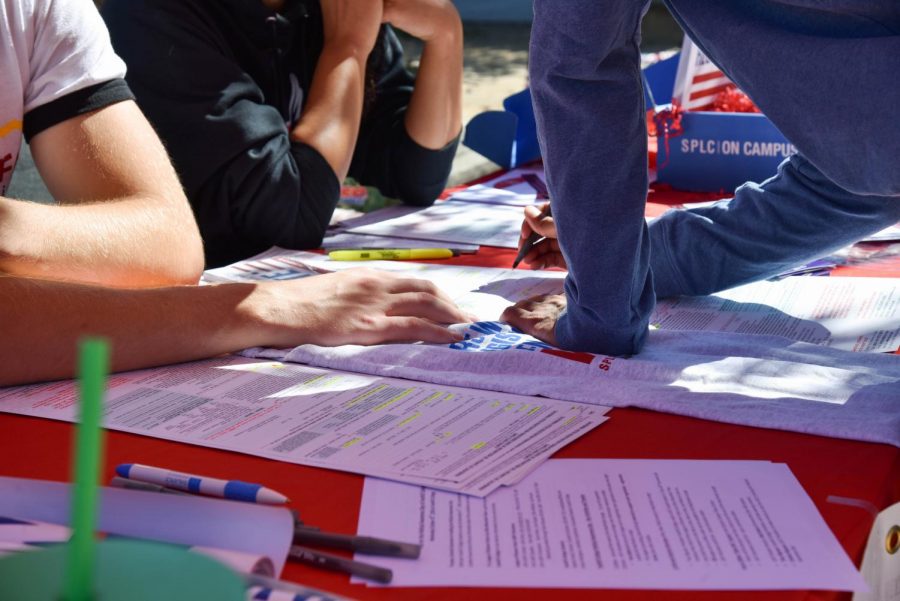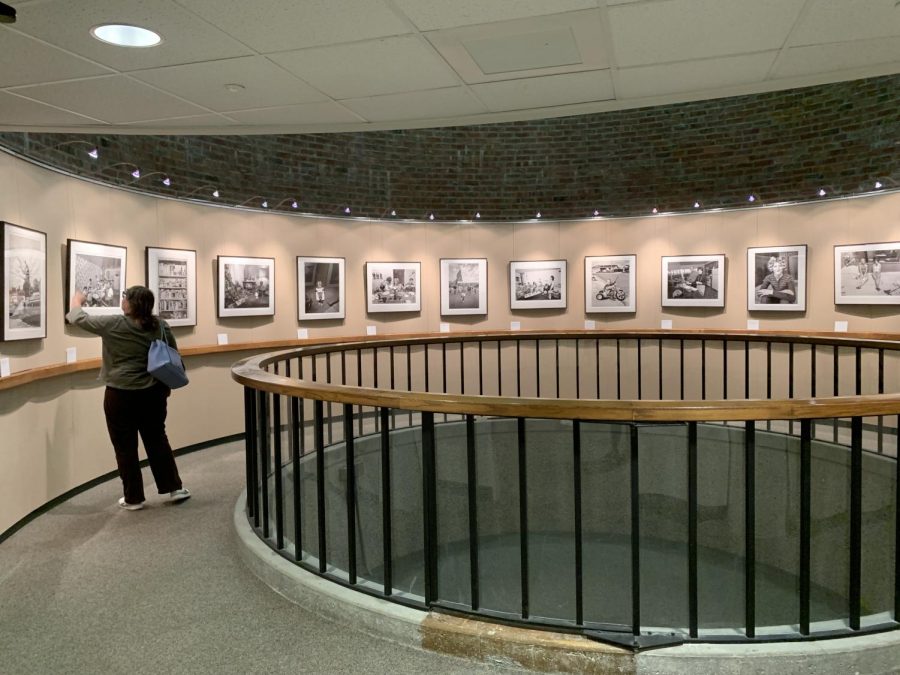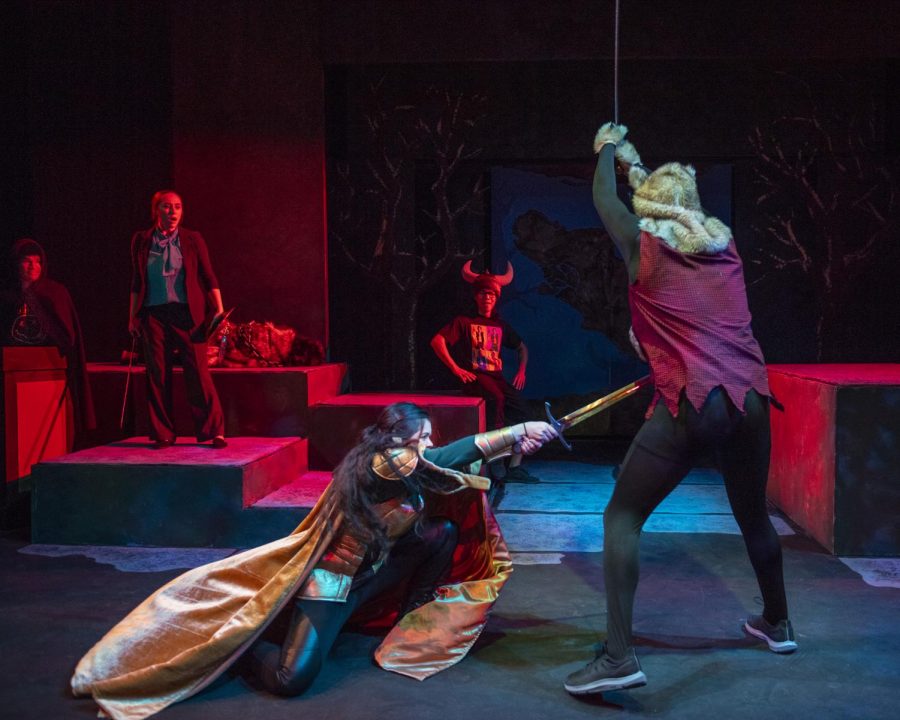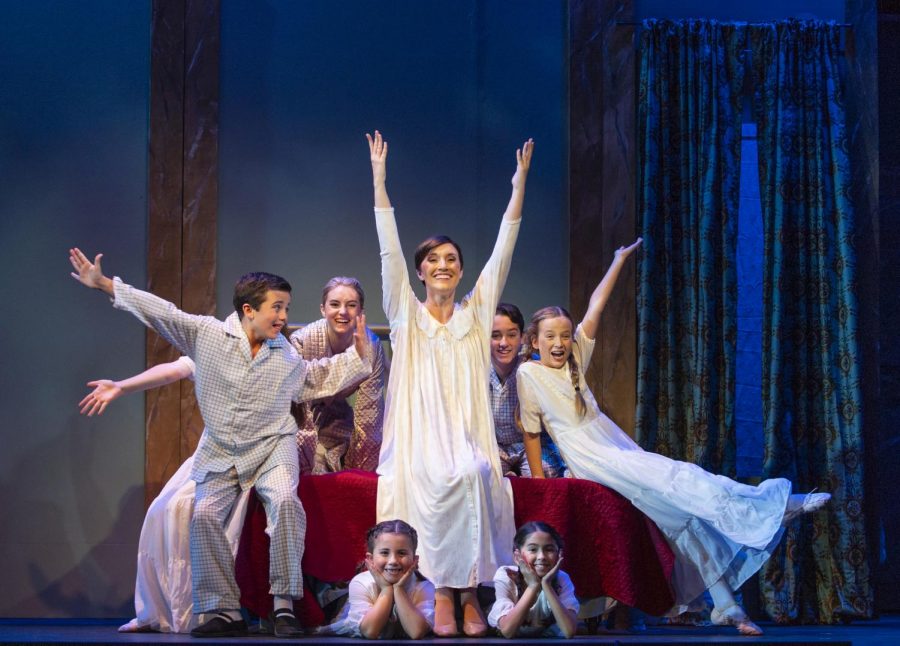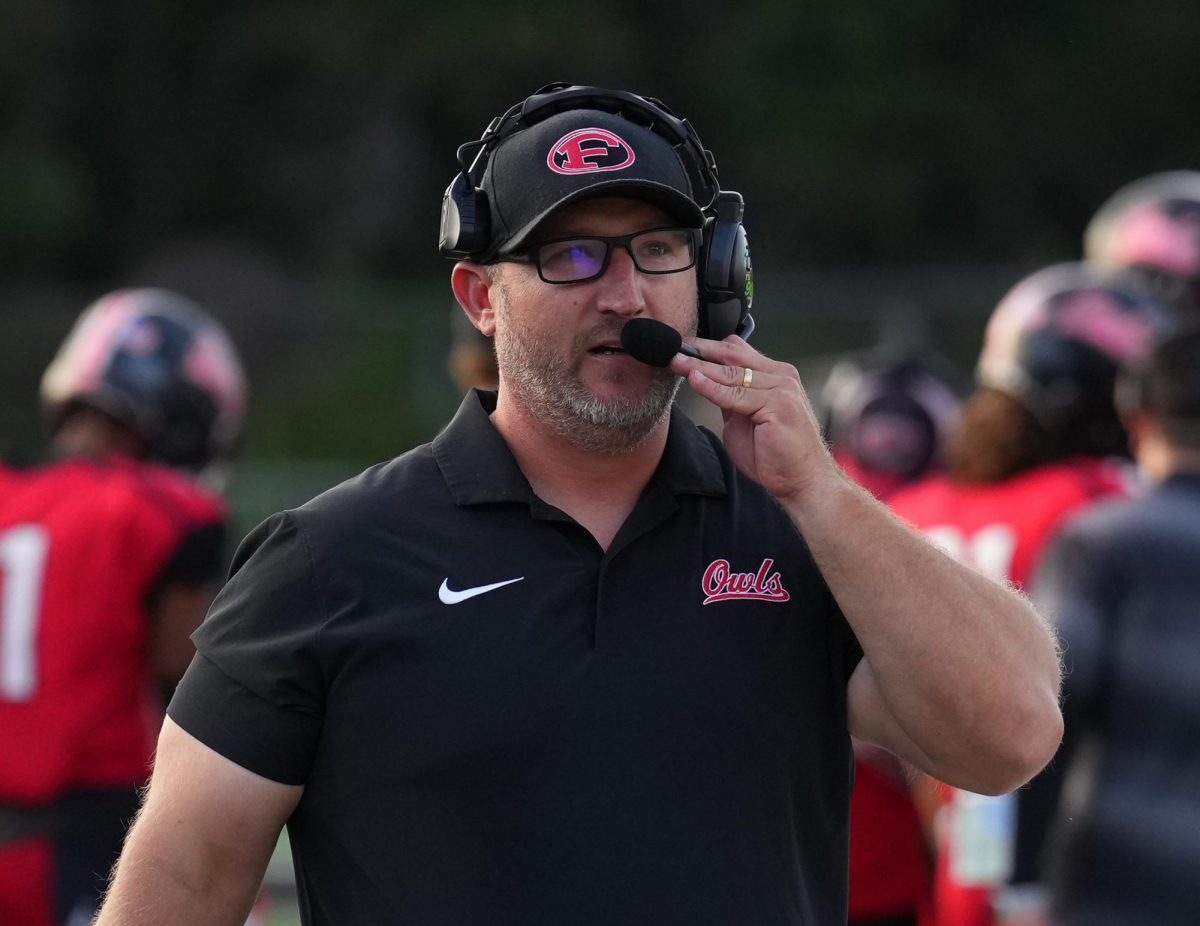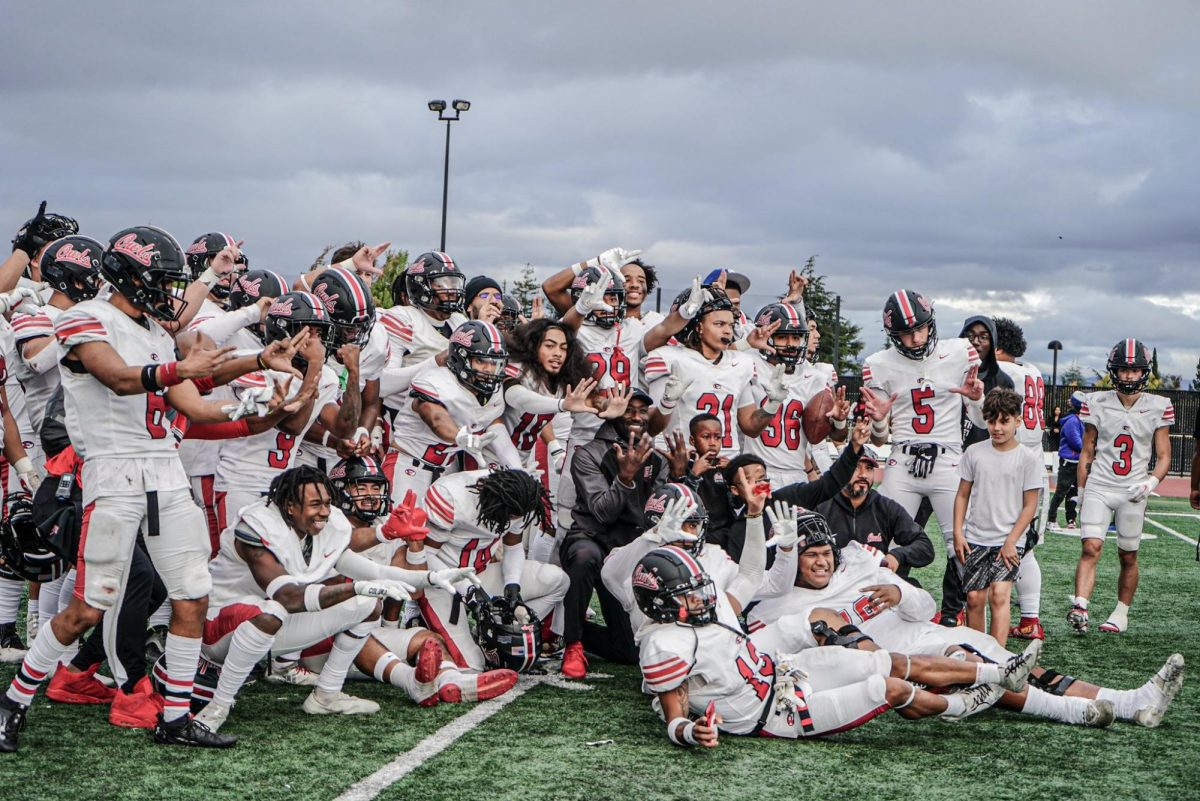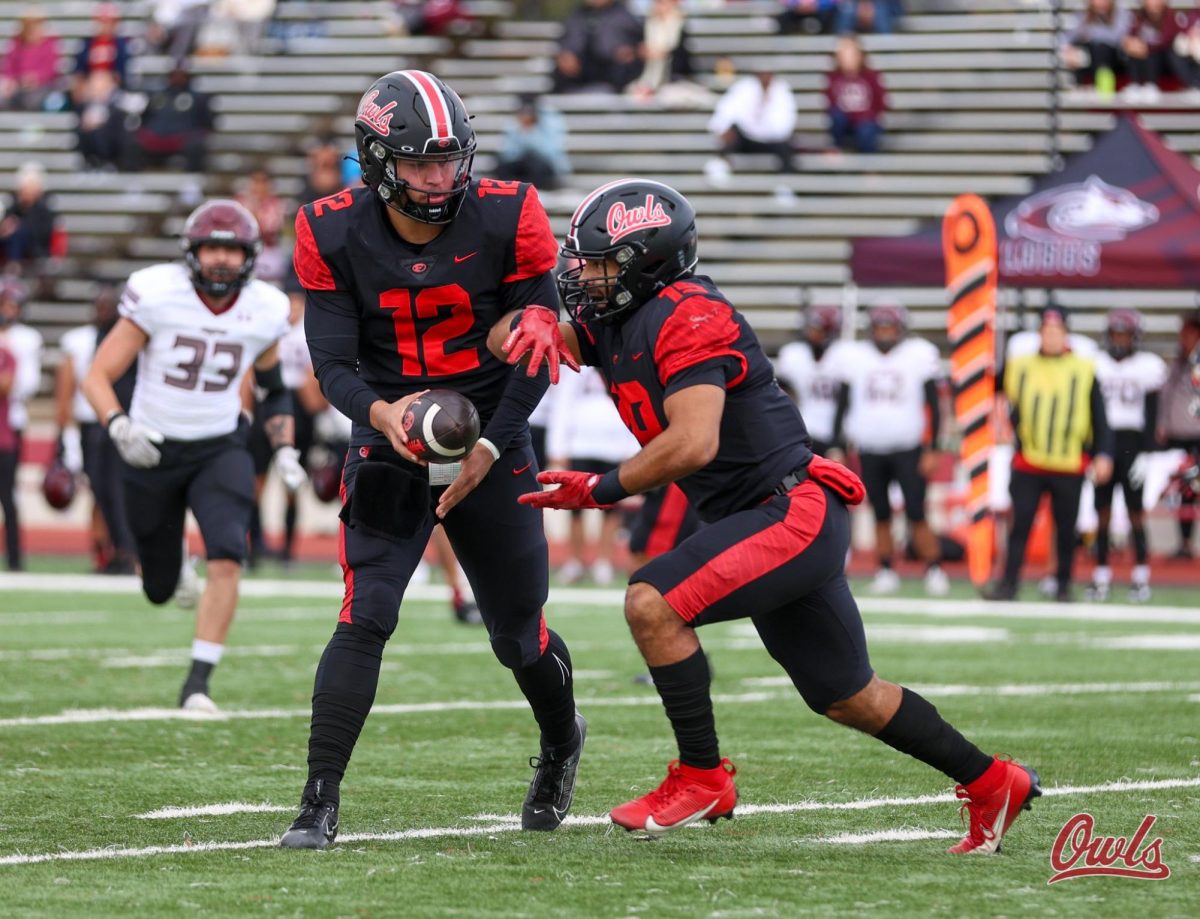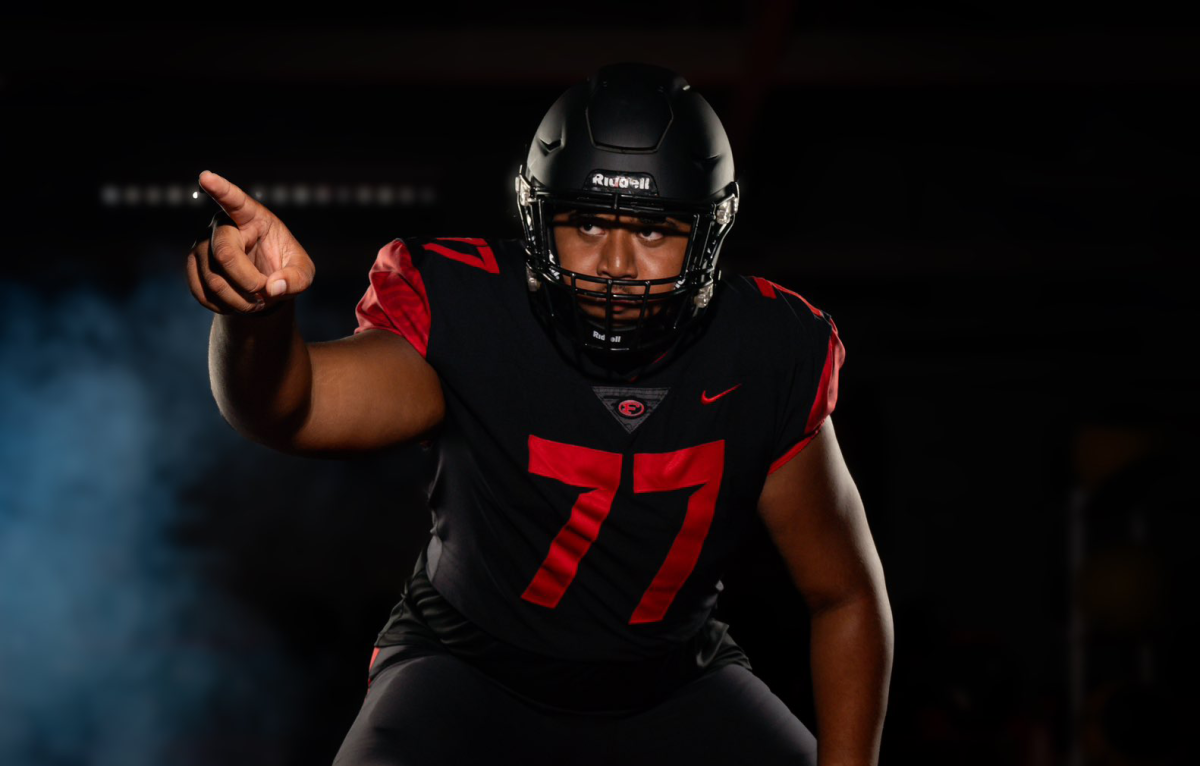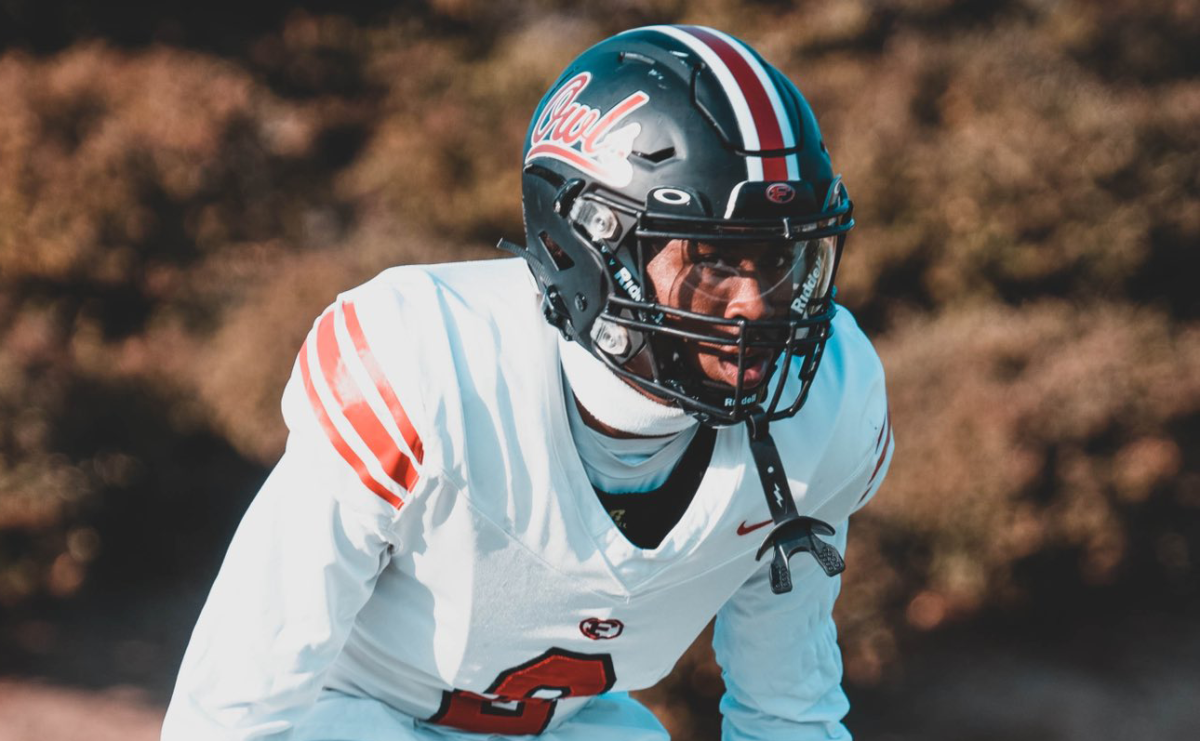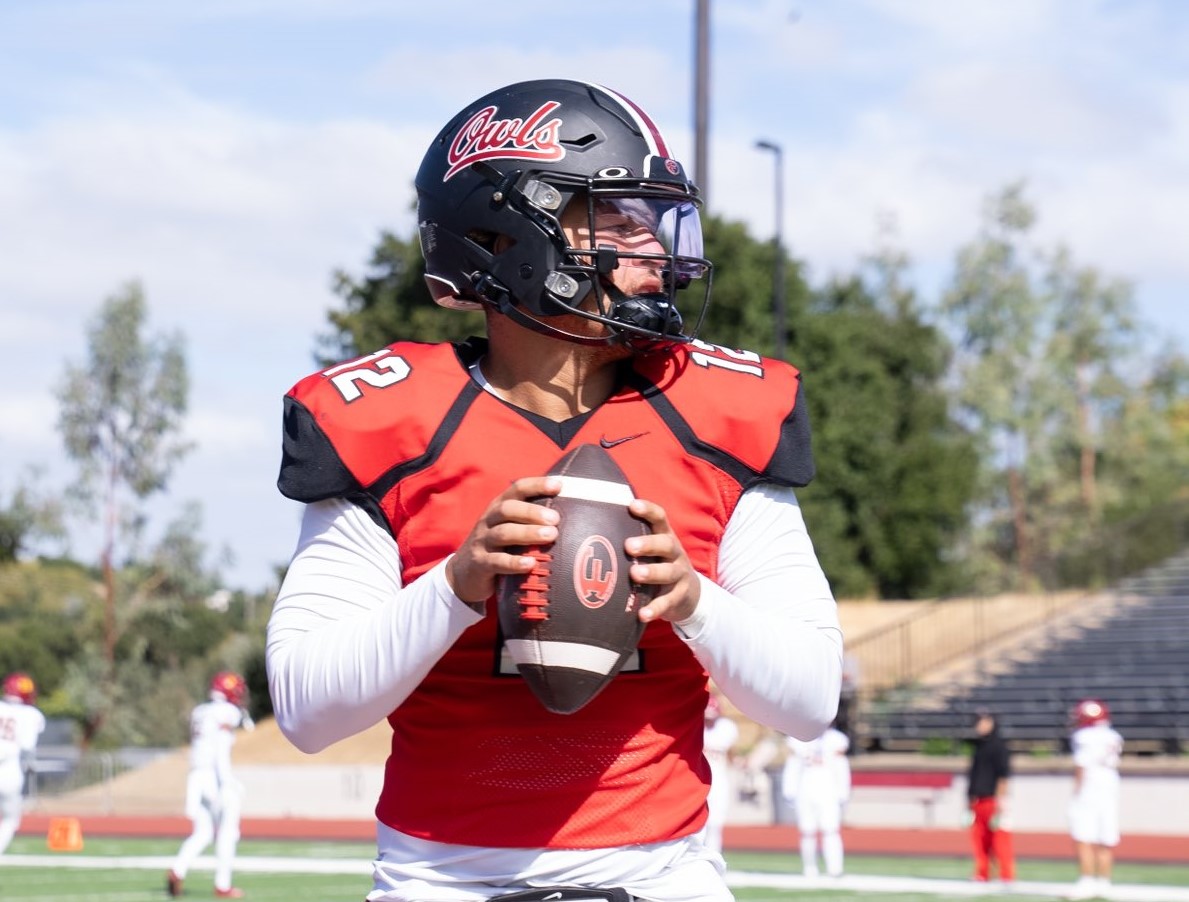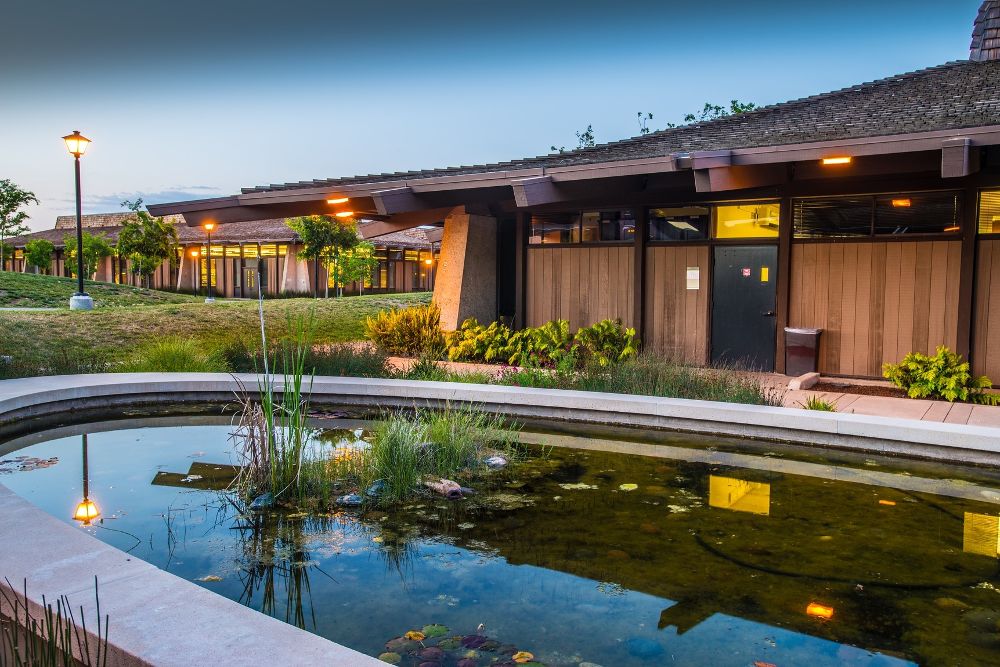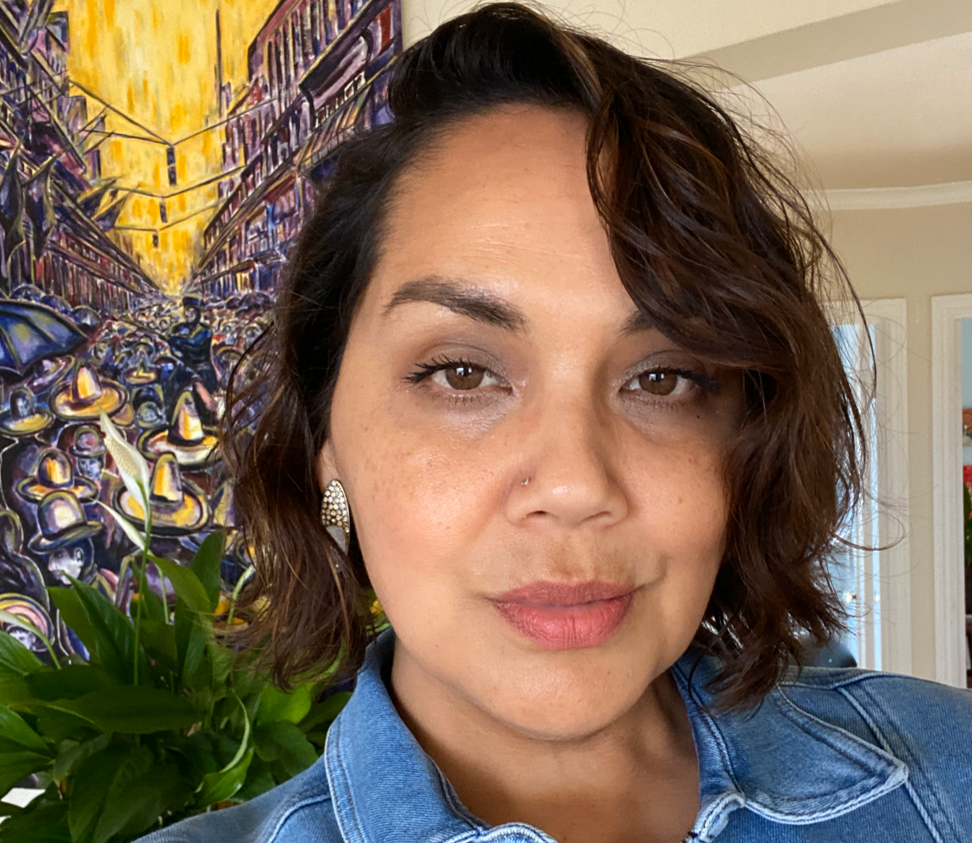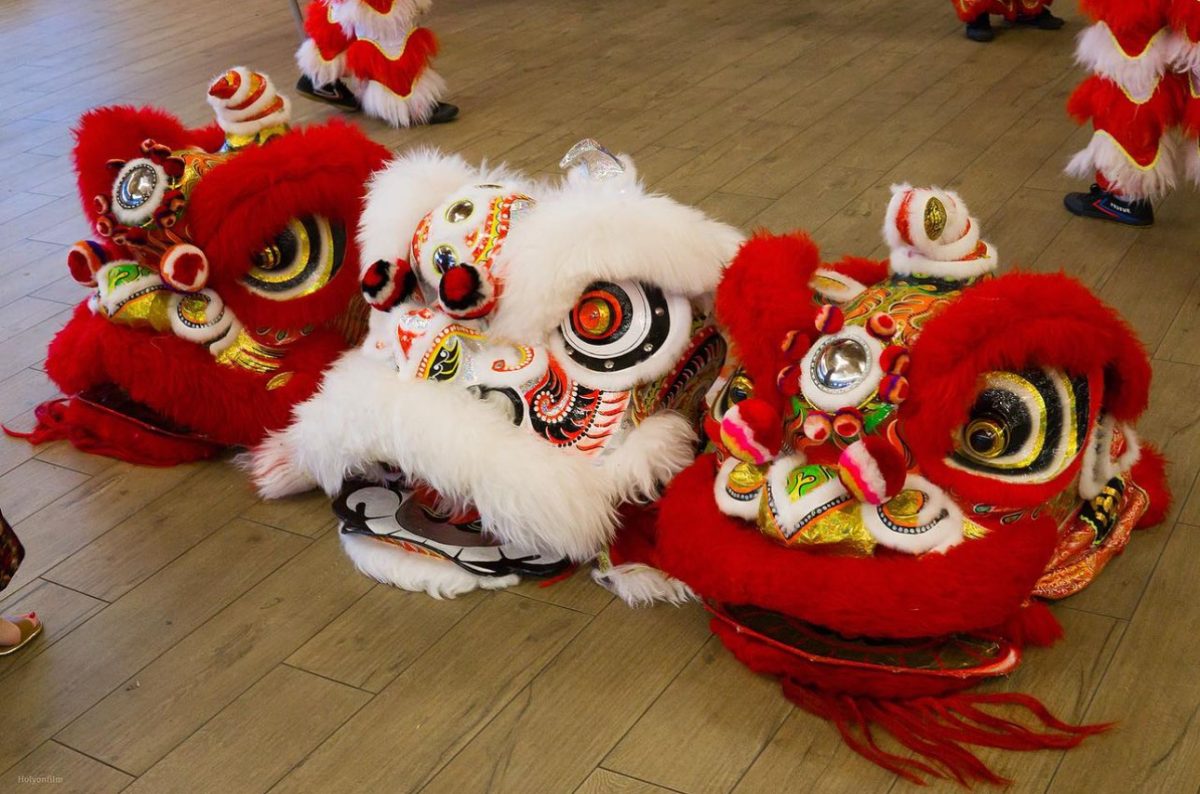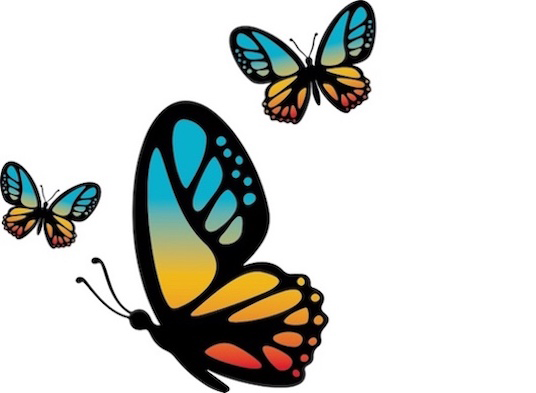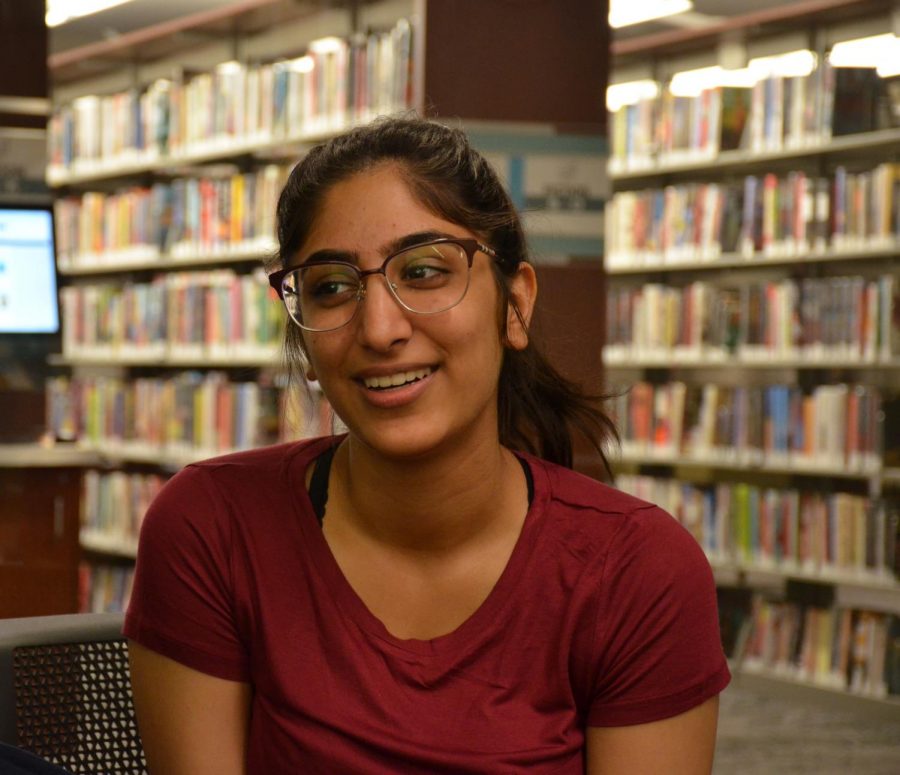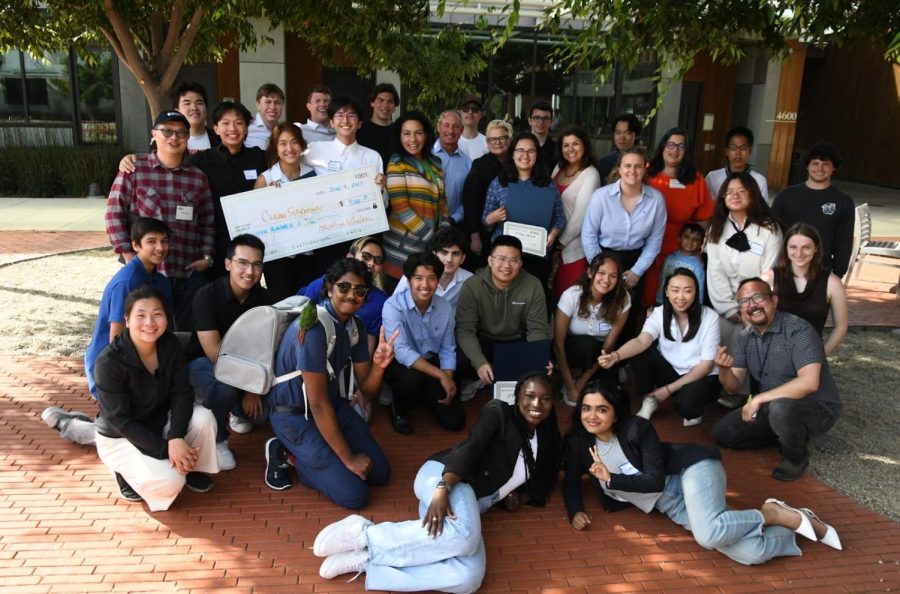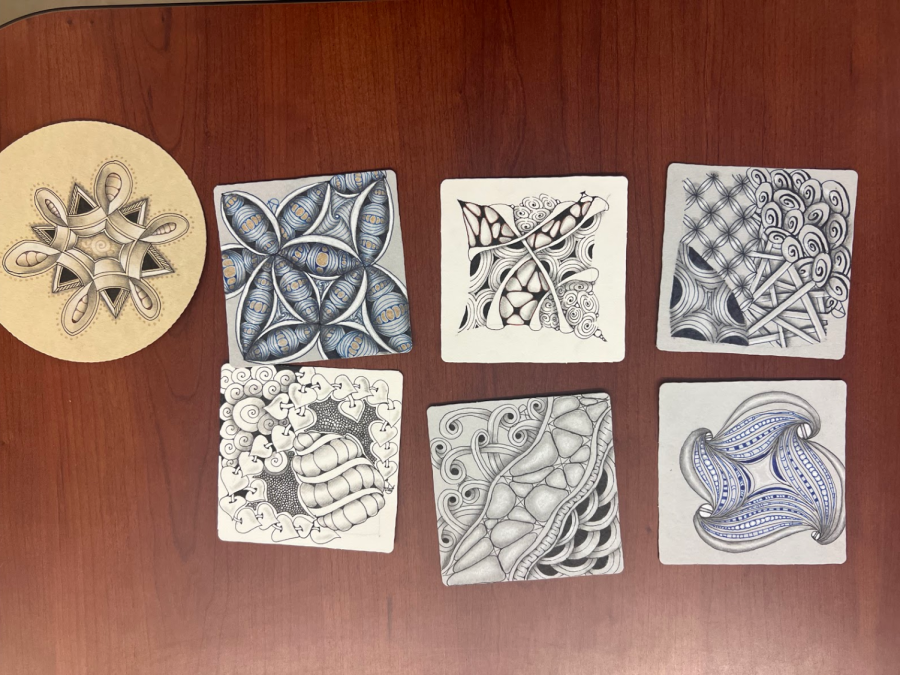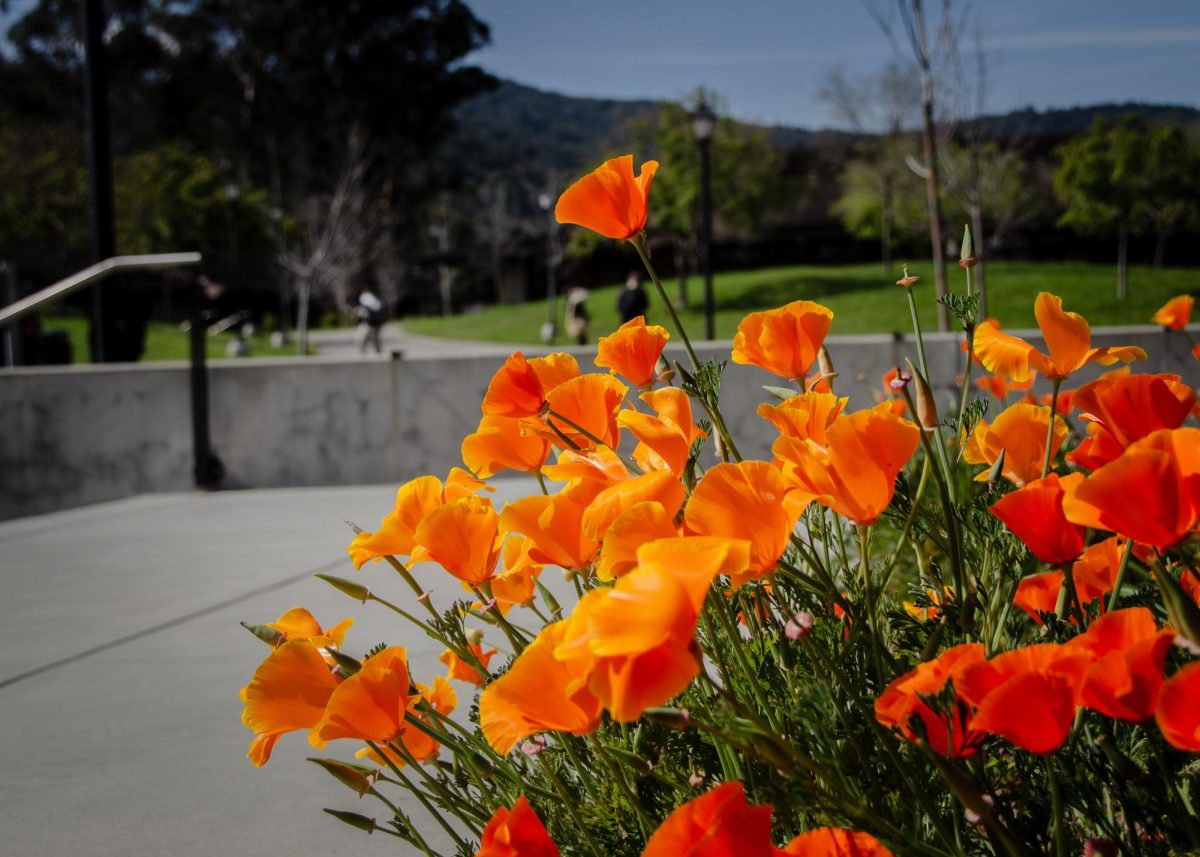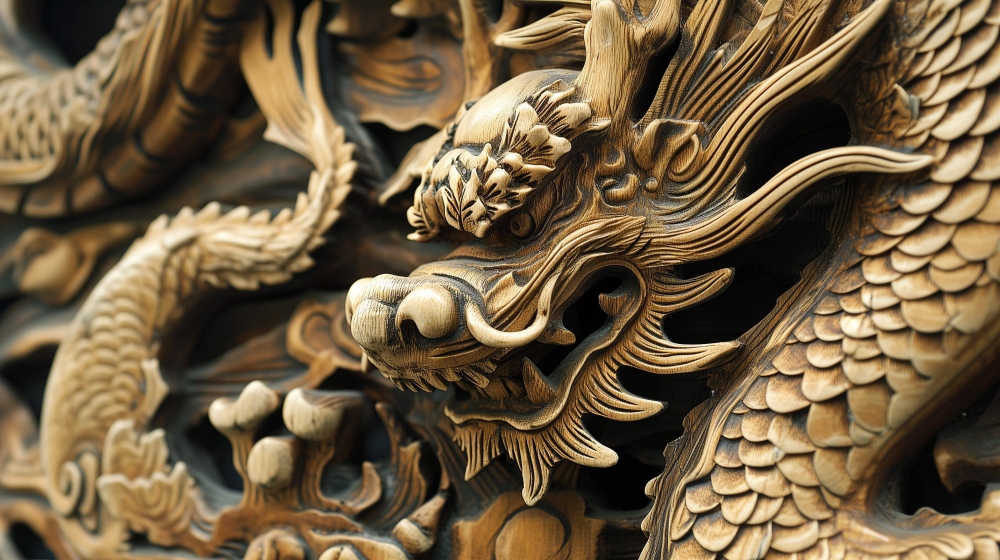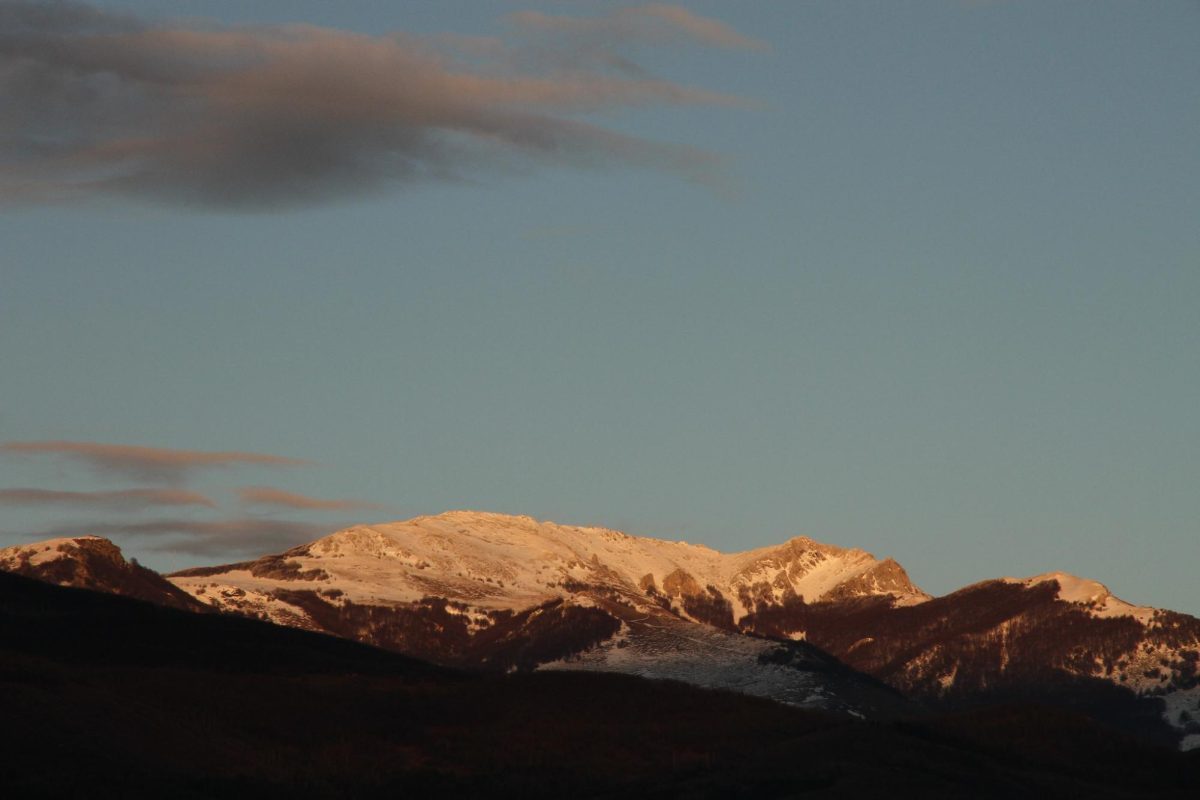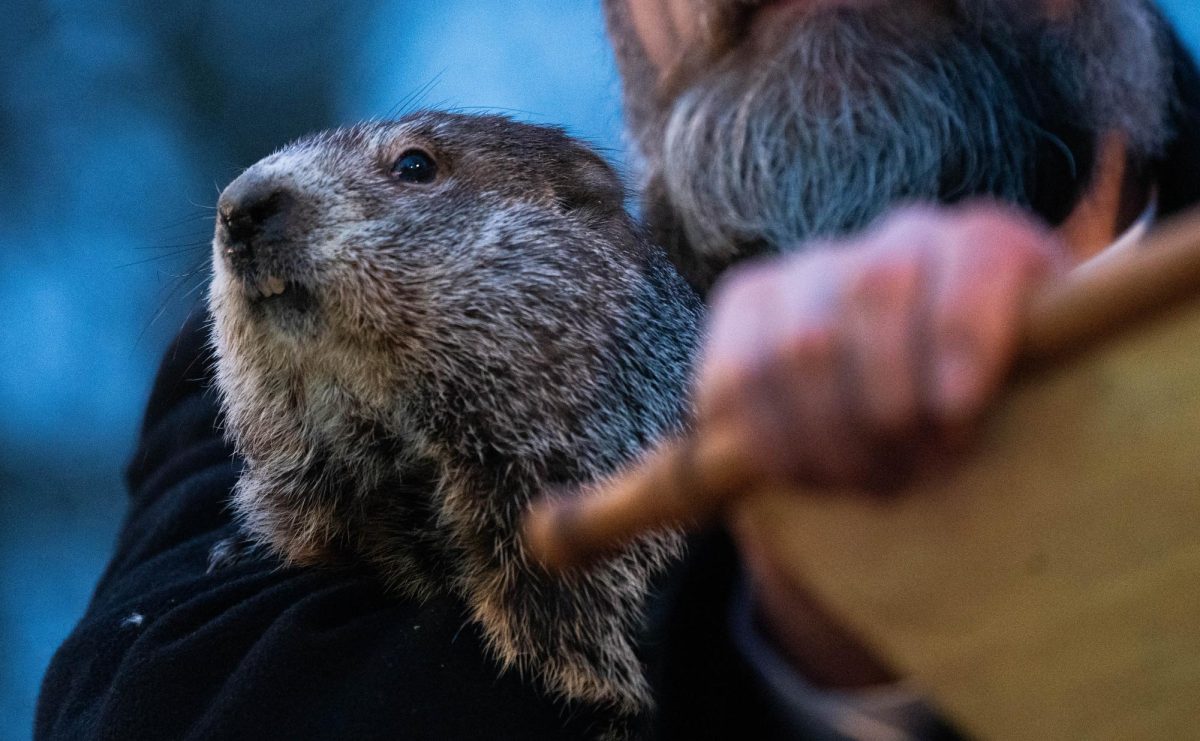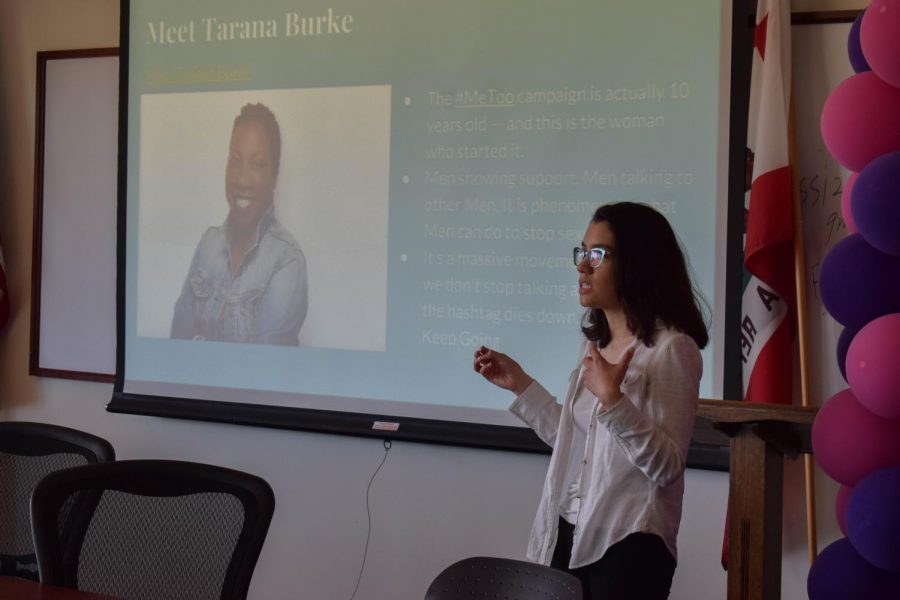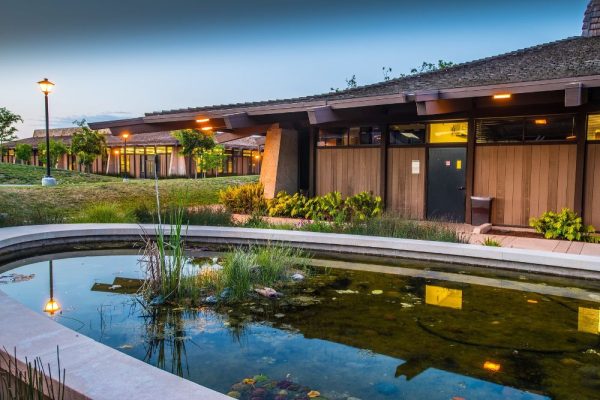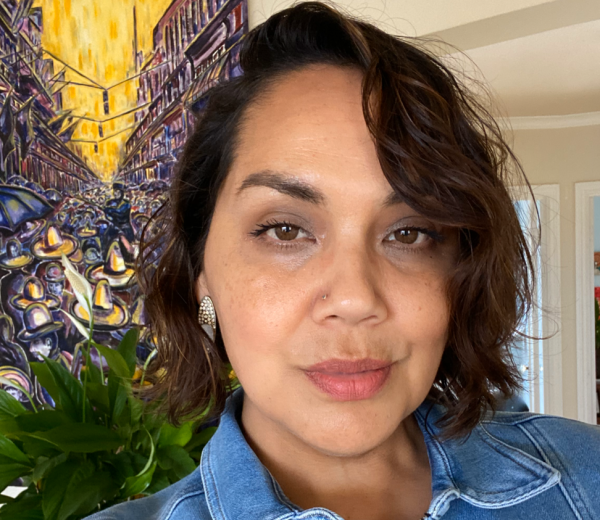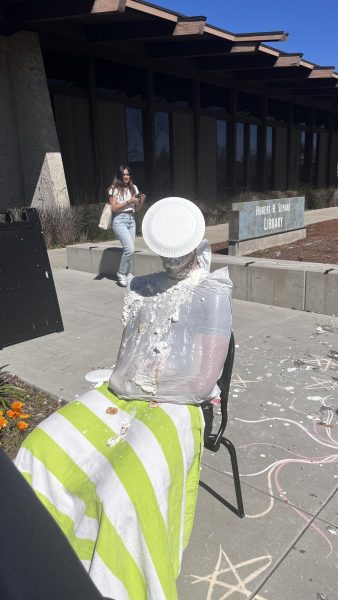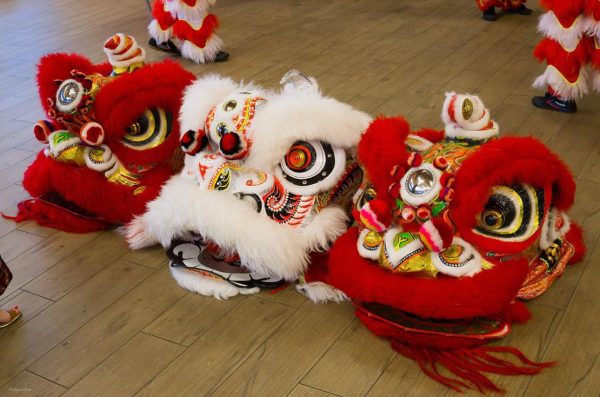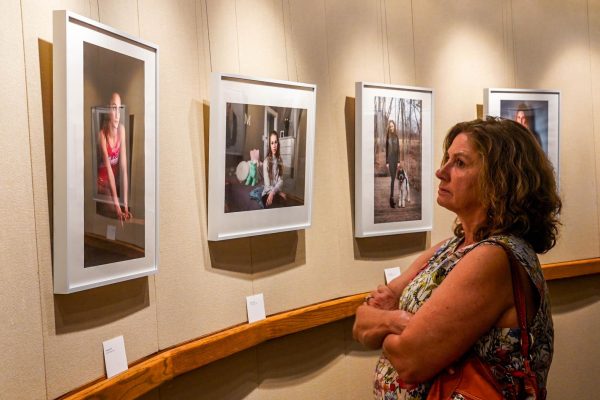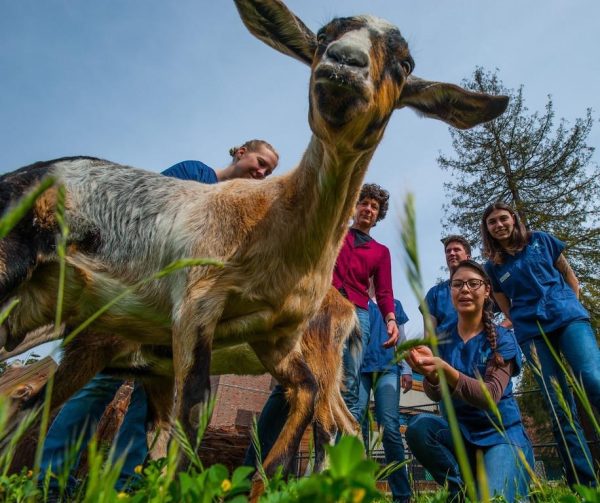#MeToo: Foothill and Worldwide
Jocelyn Lombera discusses the #MeToo Movement.
On March 8th, International Women’s Day, Foothill College’s We For She club put together a presentation as a part of Women’s History Month showcasing the MeToo movement and its history, impact, and worldwide prevalence.
The title slide of the event showcased well known American hashtags like #MeToo and #TimesUp sandwiched between nearly six other international translations. #MeuprimeiroAssedio — “my first assault” — took off in Brazil. #BalanceTonCorp — “expose your pig” — gained traction in France. The solidarity behind the MeToo revolution only became clearer as the presentation went on.
Jocelyn Lombera, a student and representative from We for She club, introduced the movement by first introducing its roots. “How many people in the room know MeToo started nearly ten years ago? Show of hands,” she prompted the audience. About two arms wavered in response.
Though the hashtag took off late 2017, Lombera explained, the concept had existed since 2007. Tarana Burke, a sexual assault survivor from the South, kicked off the movement when she was approached by a woman hoping to confide her own stories of assault. “Tarana had to cut her off because she couldn’t say ‘me too’ herself,” Lombera explained. And that was where the idea was born. Since then, the MeToo community has served as a reminder to all survivors — no one is alone in their stories.
Foothill student Elina Smith-Leitch detailed the timeline of the 2017 mass outcry. The Harvey Weinstein scandal first opened the floodgates — in October of last year, a tweet by actress Alyssa Milano accusing Weinstein of harassment triggered a wave of similar accusations towards powerful men. “Larry Nassar, James Franco, Kevin Spacey, Al Franken,” Leitch listed out the names. Time magazine celebrated women who spoke out against their perpetrators, who were dubbed “The Silence Breakers.” In 2017, those women were named Time magazine’s Person of the Year.
MeToo wasn’t a movement exclusive to the US, as Veronica Ruoqing Gan made apparent. “We looked at six countries through six continents: the US, Australia, Kenya, France, Brazil, and China.”
Gan revealed the serious accusations that had taken those countries by storm. In Australia, MeToo turned up allegations against the former mayor of Melbourne. In China, a professor at Beijing University was accused of harassment through a student’s open letter on a social media site. Brazil embraced the intersectionality of the movement.
Gan presented a picture of a black women’s march in Brazil, rallying against racism and violence as well as misogyny. “Many can’t afford the internet,” Gan detailed, “so they took the more traditional route of going on the streets.”
Moving away from the events themselves, Foothill student Juan Ramirez discussed the definitions of sexual harassment and assault, and their effects closer to home. Harassment consists of any unwanted sexual advances or discrimination based on someone’s gender, and is a common occurrence in schools and workplaces. Assault is unwanted physical contact of any kind. Unfortunately, the vast majority of assault and harassment cases go unreported — but that may change with education.
As Ramirez put it, “It comes down to us teaching other men, because it is mostly women being sexually harassed, or assaulted.”
Lisa Slede, a counselor at Foothill’s Psychological Services office, also offered her support. “We offer students who are enrolled up to eight sessions per academic year,” she announced. “We deal with issues related to sexual assault [and] sexual harassment. We are confidential. In any of these kinds of circumstances that we are talking about, it would be confidential.”
“It’s something that needs to be talked about, since it is a worldwide issue.” Lombera concluded the talk with an impassioned plea that the audience leave feeling empowered, rather than upset. “It’s empowering for women to stand in solidarity.”
The MeToo discussion was just one of the many events spanning Women’s History Month at Foothill. Events will continue throughout March.

